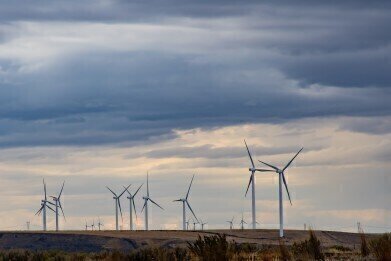Air Clean Up
Vancouver Aims for 100% Green Energy – But How?
May 02 2015
Earlier this year the Costa Rican government revealed the country had been running on 100% green energy since the start of 2015. The rest of the world applauded their effort, and admired their resourcefulness, but many were quick to point out that their methods would not scale to larger, more industrialised countries. Costa Rica is a country with a relatively very small population, and little reliance on heavy industry, so the demand for power is fairly low in comparison to other countries of a similar size. So while entire countries may not be able to commit to run on 100% renewable energy, could it be down to individual cities to go green?
Vancouver is the latest city to commit to the task of running on 100% clean energy, aiming to use it for electricity, and also for heating, cooling, and transportation by 2050. The year target for heating and cooling is 2030-2035, and transport is set to be 100% green by 2040-2050. This announcement comes at a difficult time for Vancouver as the city is still recovering from a toxic oil spill that is threatening wildlife in the waters of English Bay. However, this clearly only spurred on the city council, who voted unanimously to approve mayor Gregor Robertson’s motion for long-term commitment to renewable energy.
Vancouver is the latest city to commit to green energy, including San Diego and San Francisco in California, Sydney Australia, and Copenhagen, and target years ranging from 2020 to 2035. This is a stark contrast to cities like London, where targets to reduce carbon emissions by 2025 are almost certain to be missed.
Andrea Reimer, Vancouver’s deputy mayor said: “There’s a compelling moral imperative but also a fantastic economic case to be a green city.” It has also been noted that these targets could be reached much sooner if the city received national and provincial government support. Anna Leidreiter, coordinator of the Global 100% RE Alliance highlighted the importance of taking decision-making power away from energy companies, as they will only hinder attempts to tackle climate change. Leidreiter said: “The business model for renewables is completely different, it should benefit people not corporations.”
At present, 32% of Vancouver’s energy comes from renewable sources, and city planning officials are expected to deliver a report later this year outlining the plan of action and an anticipated timeframe for results. It is likely that hydroelectric power will be a major source of renewable energy for the city. With cities around the world becoming almost uninhabitable due to pollution, this will likely be a welcome target for Vancouver’s residents. At present, urban areas are responsible for 70-75% of global CO2 emissions, so it follows that major cities should be the first to clean up their act.
To see the benefits of reducing global C02 emissions read our article: What would happen if we stopped polluting today?
Events
May 05 2024 Seville, Spain
May 13 2024 Munich, Germany
May 23 2024 Beijing, China
May 23 2024 Beijing, China
Jun 10 2024 Algiers, Algeria














